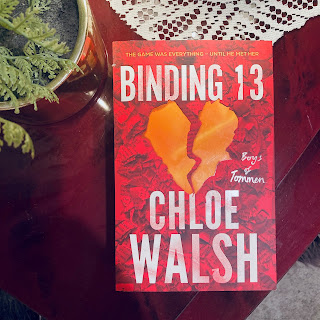Review: For Love Alone by Christina Stead
For Love Alone was a book that was placed in my hands by Giselle, the supervisor of my English Honours thesis, when I was at the tender age of twenty-one. Painfully, brutally shy, and something of a late bloomer when it comes to all things emotional, I struggled to understand this book. And now, ten years later, I wish that I had tried harder. It could have saved me a whole lot of bother.
For Love Alone tells the story of Tess Hawkins, a young, idealistic woman from Sydney who falls in love with Jonathan Crow, a man who is not only indifferent to her in a sexual and romantic sense, but who is arrogant, unpleasant and takes a sadistic pleasure in watching her suffer. With no true understanding of the difference between love and sexual attraction, Tess devotes herself to this man completely, believing that love means to give everything and not ask for a single thing in return. Tess suffers a considerable amount of cruelty at the hands of Jonathan (the scene where she is left alone and frightened in a mill at nighttime is particularly memorable,) before eventually being rescued by her employer, James Quick, who shows her how she deserves to be treated as a woman.
What I love about For Love Alone (which has been reread over the course of this week, not an easy feat given the length of the novel,) is the total honesty of the book. Tess is is simply a young woman who thinks that she understands what love is and behaves accordingly. As for Jonathan, the author doesn't pull any punches here. He is an arsehole. Somehow, though always maintaining his indifference, he manages to play with Tess' emotions for little more than his own sadistic pleasure. There is a hint within the novel, through a letter that he sends another girl, that Tess may not in fact be the only young woman that he is playing in such a way. There is no punishment for the character and no change of heart. Jonathan is quite simply, an arsehole at the beginning of the novel and remains an arsehole at the end. The only way Tess can find a way out of the situation is to simply walk away and never look back.
Maybe I am simply not as well-read as I could be, but I also found that Jonathan Crow is a rare character in fiction. The tortured hero is a common character in romantic fiction, and usually any seemingly cruel actions on his part have some kind of explanation. His love for the heroine is boundless and he feels hurt when any kind of pain is inflicted on the woman that he loves. One example of such a character is Mr Darcy from Pride and Prejudice who helps to rescue Elizabeth's wayward sister Lydia after she elopes with the nasty Wickham. Darcy's actions at this point are completely selfless, as he Elizabeth has turned down his proposal and he believes that she could never marry him. Stead leaves us in no doubt that Jonathan Crow is not this kind of man.
A sadist is less common in fiction. Many sadists (this are emotional sadists, not to be mistaken for sexual sadism,) such a Heathcliff from Wuthering Heights are often portrayed as having some kind of redeeming qualities, or it is suggested that their actions are caused by a bad childhood or via an obsessive, albeit pure, love for the heroine. It is, I suppose, a romantic idea that appeals to the emotional centre of our minds and may to explain the popularity of the Fifty Shades trilogy, in which Christian Grey's need to control everything around him is explained by his abusive childhood. It is, of course, the love of a woman, the innocent and easily seduced Ana Steele, that saves him. A true emotional sadist cannot be saved, nor does he want saving though he could easily use it as a ploy to seduce women. Mr Rochester from Jane Eyre is another example (damn, those Bronte sisters must have met some duds in their time,) happily seducing and almost marrying the young Jane (before it is revealed he has another wife locked in the attic,) and only changing his ways after he is severely harmed in the fire that kills his first wife. It could be easily argued that Rochester does not love Jane any more or less than he did before the fire, but he now simply finds her devotion quite convenient and is happy to have her around to suit his own purposes. But maybe that is the cynic in me.
Jonathan, of course, has no love for Tess or for any other woman, and nor has he suffered an abusive childhood. He is just a man who gains pleasure by inflicting emotional torture on others. It's impossible to question the why or how come of his actions (though I suspect many readers have tried,) because there is no answer. He just is.
Overall, For Love Alone is an honest tale of an idealistic young woman who learns some tough lessons about love and what it means to be a woman. Simply brilliant.




Comments